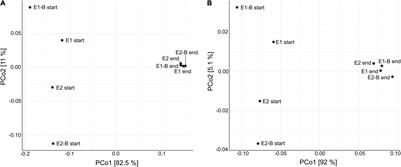EDITORIAL
Published on 02 Jun 2022
Editorial: Natural Microbial Communities and Their Response to Antibiotic Occurrence in Ecosystems
doi 10.3389/fmicb.2022.919316
- 1,112 views
4,847
Total downloads
22k
Total views and downloads
You will be redirected to our submission process.
EDITORIAL
Published on 02 Jun 2022
ORIGINAL RESEARCH
Published on 31 Mar 2022

ORIGINAL RESEARCH
Published on 03 Mar 2022

ORIGINAL RESEARCH
Published on 09 Feb 2022

ORIGINAL RESEARCH
Published on 07 Feb 2022

ORIGINAL RESEARCH
Published on 03 Nov 2021

